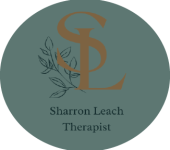How to find a good therapist
If you’re thinking of engaging in therapy because you need help with a particular issue here are some tips on how to find a good therapist which you will find useful. Finding a therapist who is a good fit for you is an important element to achieving a positive outcome. You need a therapist who you feel understands your problem, feels genuine and who you feel comfortable with.
Before you make contact with any therapist be sure to have a look at their website, social media accounts and read reviews from others who have used their service.
You may also wish to find out which professional body they are registered with, what qualifications they have, how long they have been practicing for and whether they are DBS registered.
This will give you an overall sense of who they are, how they work and how they can help you. If you feel happy with what you see and you want to take the next step of contacting them it would be useful to have some questions ready to ask them. It would also help the therapist if you could be as clear as possible about what you hope to achieve by working with them.

So, what is the nature of your problem?
- Is anxiety holding you back?
- Are you feeling depressed?
- Are you in need of couple’s therapy to help with a difficult relationship?
- Did you experience childhood trauma which is now negatively impacting your daily life?
- Are you having difficulty coming to terms with grief or betrayal?
- Are you struggling with unhelpful coping mechanisms such as obsessive compulsive behaviours or uncontrollable anger?
Next you may want to ask them:
- What sort of therapy do you offer?
- What’s the difference between counselling and therapy?
- How many therapy sessions will I need?
- How long are the therapy sessions?
- How often will I need to see you?
- Have you successfully worked with others struggling with anxiety, depression or childhood trauma similar to myself?
- Do you offer in person and/ or virtual therapy sessions?
- How much do you charge?
You may also wish to know about availability of parking and ease of access to the premises and how quiet or private the location is.
What can I expect on my first session?
Following the tips on how to find a good therapist you may wish to go ahead and book your first session. You should expect a warm welcome by your name and an invitation into a room that feels safe and well- presented without being too formal and stuffy.
You may be asked to complete a simple form with your details and any other information the therapist may require if you haven’t done so previously.
You may then be asked a range of simple questions in order that the therapist can further assess your wants and needs and ultimately what outcome you are hoping for by working with them so together you can formulate a plan.
Many clients fear they will have to discuss painful or traumatic events from their past in order to heal their current problem. This is definitely not the case. If you are not happy or comfortable to share such information do not be afraid to say so. There is much that can be done to help you move forwards without having to trawl through past events.
On the other hand, many clients find relief in sharing painful or traumatic events that have happened in their lives. Every client is different and it’s the job of the therapist to adjust their approach according to the client’s capacity to manage emotional changes and challenges.
You may expect to leave your first appointment with an idea of how many sessions you may need and what homework you may be required to complete between sessions. You should also understand how the therapeutic journey may come to its end by tapering off the sessions.
I would expect you to feel that you have been listened to and that the therapist had a good understanding of your problem and was able to give you hope that a positive outcome was absolutely possible and how that was going to be achieved.
If you leave the session feeling somewhat lighter and more hopeful than when you arrived that’s a positive sign of a good fit for you. If you left feeling no better or even worse than when you arrived you must look for another therapist straight away.
Get In touch
07980 734410
available from 09:00 – 20:00
Email hello@sharronleachtherapist.co.uk

